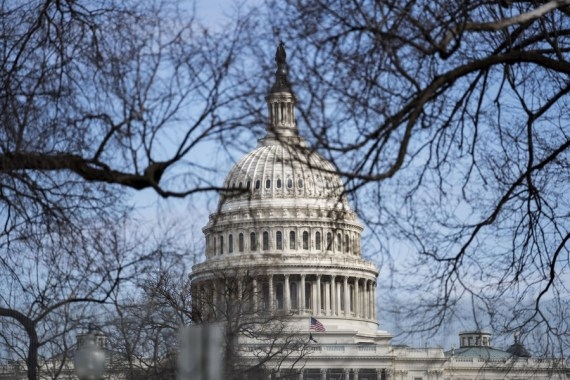In comparison, the EU’s economy is expected to grow faster than previously thought this year and next, with member states growing an average of 1.0% in 2023, according to the European Commission…reports Asian Lite News
Britain has seen no economic growth in three months, the country’s statistic agency said on Thursday. Other European states are faring better, meanwhile. Britain’s economy has flatlined, as post-Brexit trade and vital sectors continue to perform poorly, new figures reveal.
The Office for National Statistics (ONS) said on Thursday the economy has “shown no growth” in three months, with production shrinking the most.
Monthly GDP growth – measuring the total value of goods and services produced in a country – fell by 0.1% in May after a brief rise of 0.2% in April.
Britain’s economic recovery since the COVID pandemic has lagged behind most other advanced economies, with only recession-hit Germany faring as badly this year.
In comparison, the EU’s economy is expected to grow faster than previously thought this year and next, with member states growing an average of 1.0% in 2023, according to the European Commission.
Britain’s figures were better than those expected by economists. But they will likely add pressure to Rishi Sunak’s Conservative government, with the Prime Minister including “growing the economy” as one of his five core pledges at the start of the year.
All sectors of the UK economy contracted in May – bar services which showed no growth.
Factory output fell the largest by 0.6%, construction declined by 0.2% and the services sector remained stagnant, with no change on the previous month, according to the ONS.
Inflation has remained stubbornly high, battering British households and some businesses. It stayed at 8.7% in May, despite predictions it would fall.
Meanwhile, in a statement, the Scottish National Party pointed the finger at Britain’s exit from the EU. “The UK’s stagnating economy has continued to slip further and further behind that of the EU’s, as a direct result of the damaging Brexit,” said SNP’s Economy spokesperson, Stewart Hosie MP.
“While EU nations have enjoyed a steady bounce-back from the pandemic, the UK’s economy has barely moved in four years, with the consequences being passed on to ordinary people.”
Brexit’s role in the economic fortunes of Britain is disputed, with some economists emphasising the role of COVID and the Ukraine war.
A public holiday for the King’s coronation contributed to decreased manufacturing and construction output, the Office for National Statistics said.
“GDP fell slightly as manufacturing, energy generation and construction all fell back, with some industries impacted by one fewer working day than normal,” ONS Director of Economic Statistics, Darren Morgan, said.
Writing on Twitter, Resolution Foundation economist said the ONS data showed the UK was suffering “weak export performance in key manufacturing sectors”.
Exports to the EU fell by 6.8%, compared to a 2.1% drop with the rest of the world, she pointed out.
Strikes in the public sector and industries also hit the economy, according to the ONS report, with “industrial action” on the railways having an adverse effect.
The disruptions caused the GDP of food and beverage services to fall drastically – the most out of all the sub-categories. However, the coronation bank holiday positively affected the arts and entertainment sector, the report added.
The entertainment industry had the second-largest growth, only led by human health and social work activities, to prevent the economy from succumbing further.














